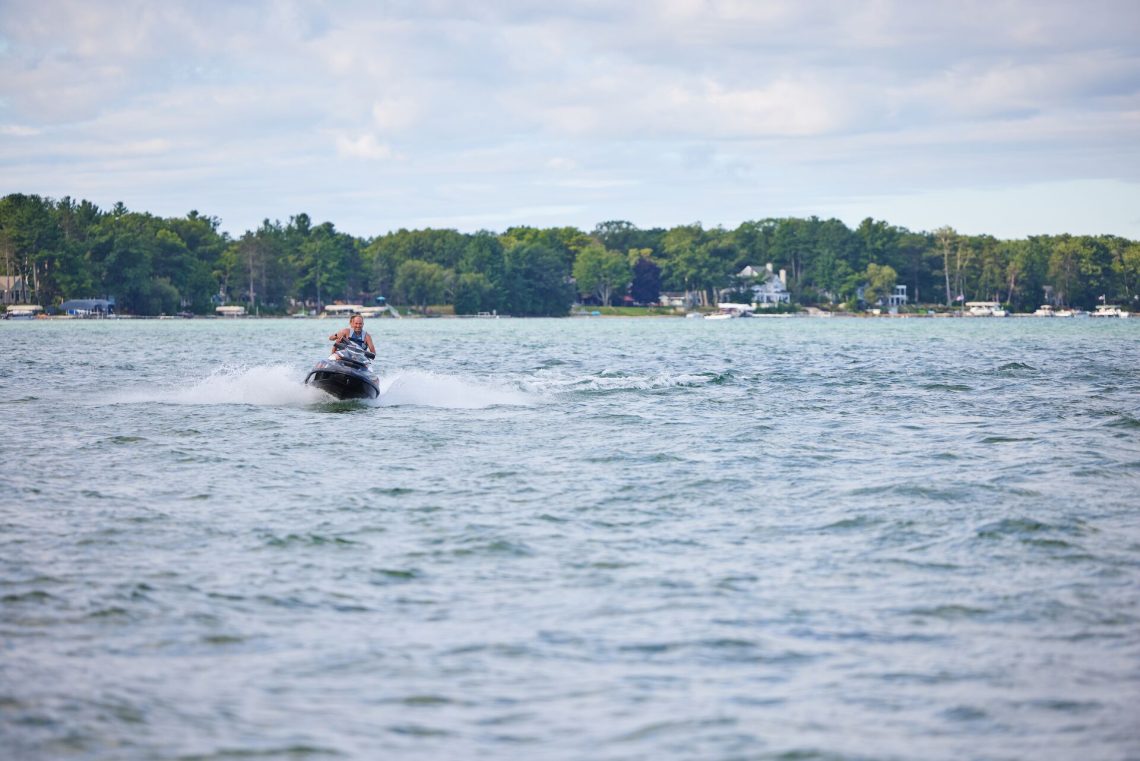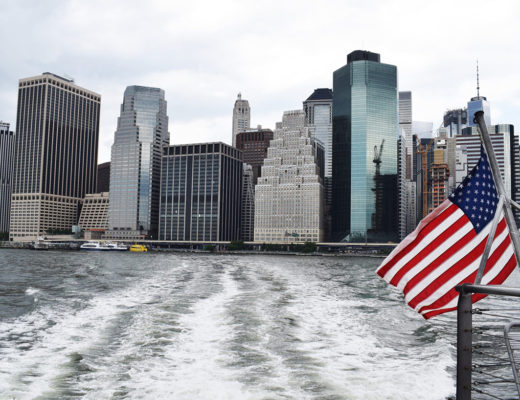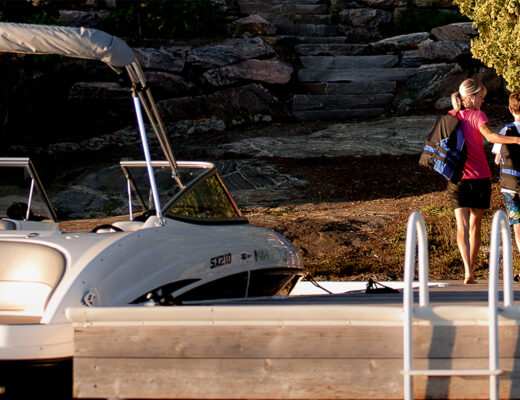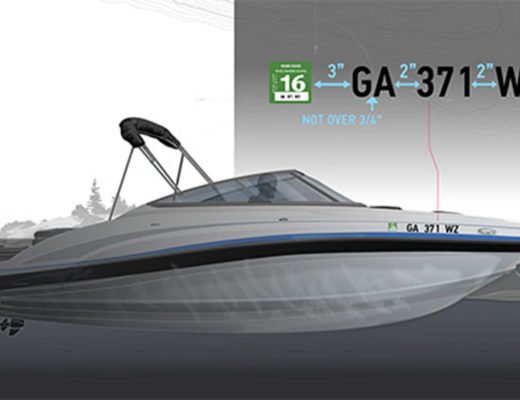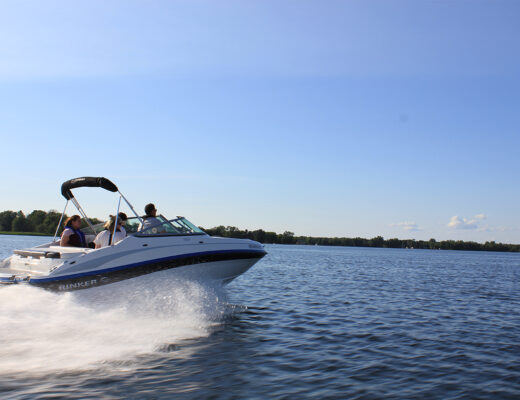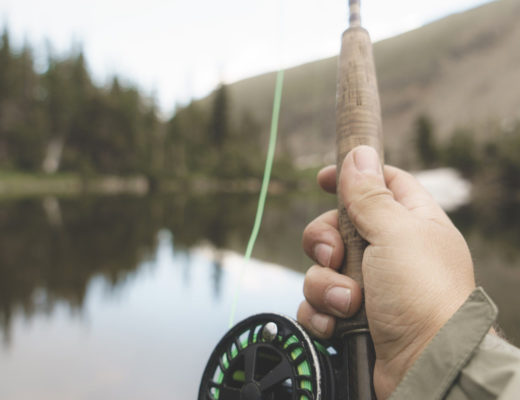If you plan to go boating in Maine — whether you live there or visit for fun — it’s crucial to know the laws and regulations of the state regarding getting out on the water.
From boating to operating a personal watercraft (PWC), fishing, or kayaking for a relaxing outing, Maine boating regulations help govern the waters and keep people safe.
So, before launching, read our guide to the boating laws in Maine!
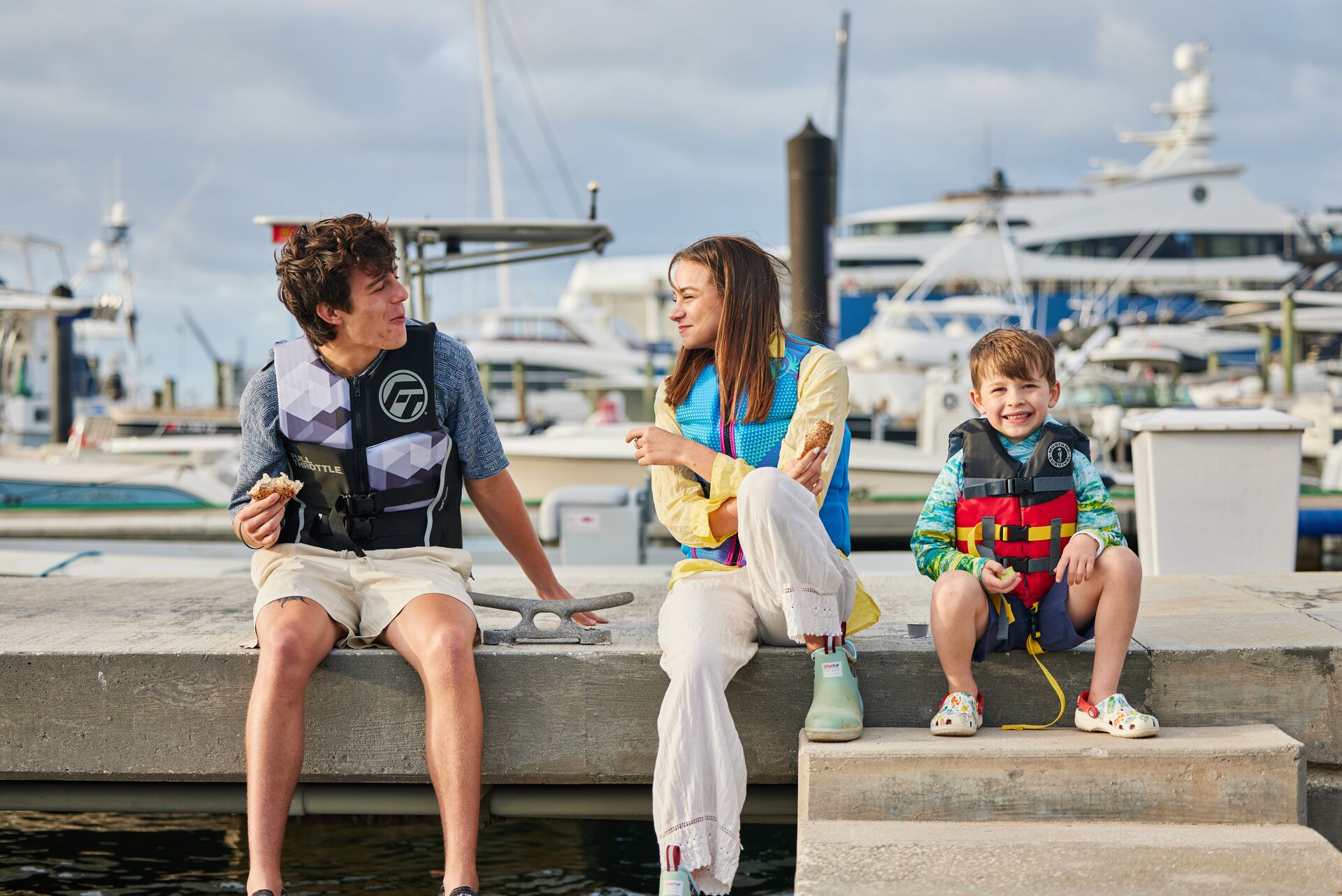
Who needs a Boater Education Card in Maine?
If you’re between 16 and 18 years old, the Maine Department of Inland Fisheries and Wildlife (Maine IFW) requires you to complete a boating safety course if you want to operate a personal watercraft unsupervised.
Without a boating safety certificate, you’ll need to be accompanied by somebody who’s at least 18 years old to operate personal watercraft on Maine waters.
Maine Life Jacket Requirements
State law requires each person on board to have a properly fitting U.S. Coast Guard-approved serviceable life jacket. Also, boats longer than 16 feet must have a throwable PFD.
The Maine Warden Service recommends that everyone wear his or her lifejackets while on the water.
Safety Equipment
In addition to life jackets, the state requires boats to carry specific safety equipment. Here’s a general guide to those requirements:
- If your boat has any enclosed compartments or a false floor, you must carry a Coast Guard-approved fire extinguisher. Make sure it is charged and accessible.
- Always test your boat lights before the boat leaves the dock and carry extra batteries.
- Keep emergency supplies on board in a floating pouch complete with maps, flares, and a first aid kit.
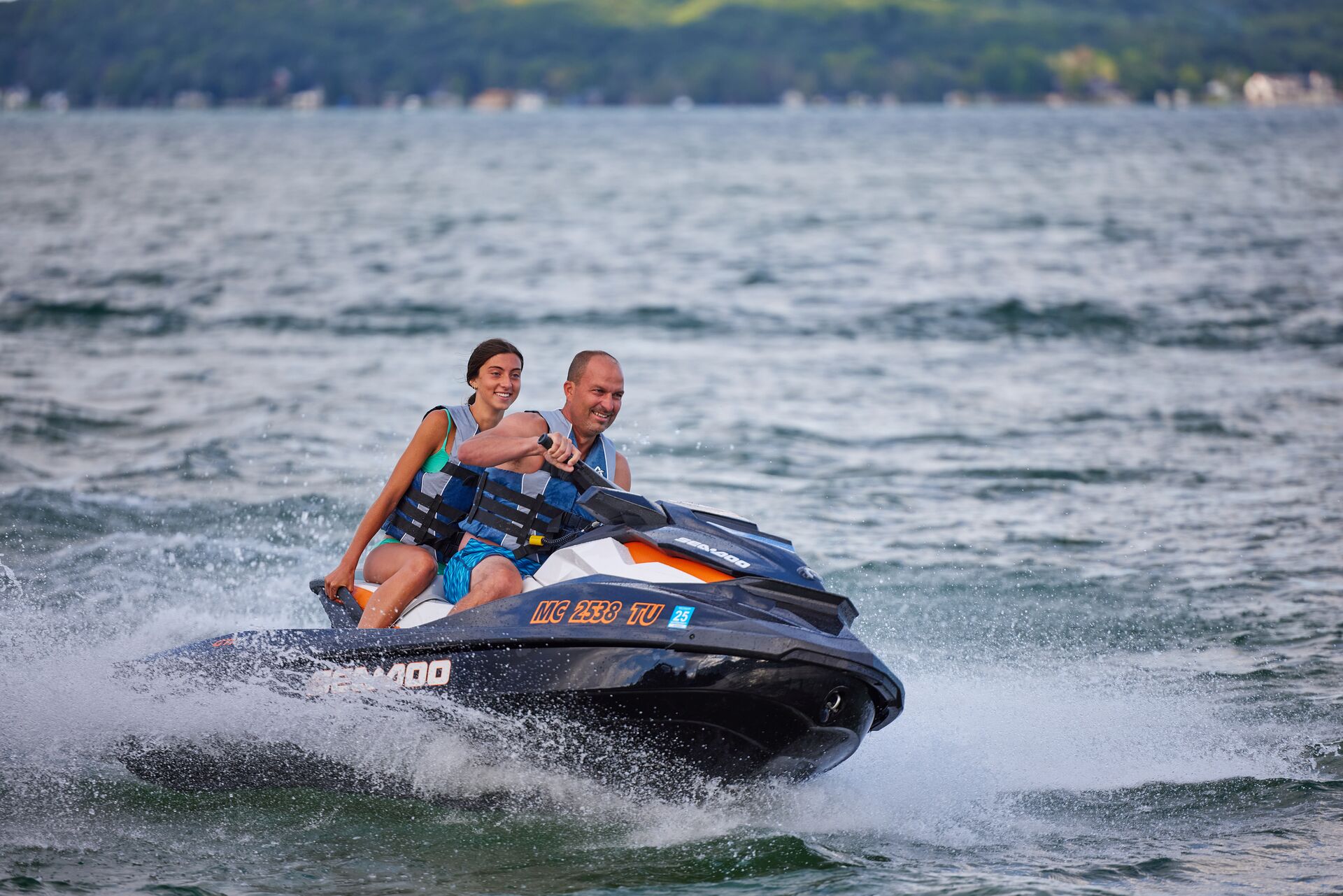
Maine Boating License Requirements for Personal Watercraft (PWCS)
The following restrictions apply to operating a personal watercraft:
- No one under 16 years of age may operate a personal watercraft.
- Persons 16 and 17 years of age may operate a personal watercraft only if they:
- Have successfully completed an approved safety education course and carry on board proof of age and course completion
- (Or) are accompanied on board by a person 18 years of age or older.
PWCs are a lot of fun but can be very dangerous if not operated safely and according to state laws.
Boat Registration Requirements
The Maine IFW requires all motorized boats, including personal watercraft, used on state waters to be registered
However, there are a few exemptions, including:
- Vessels currently registered in another state or country with a properly displayed decal, not operating on Maine waters for more than 60 consecutive days
- Ship lifeboats
- Vessels displaying a current boat number from a recognized racing association that is strictly used for racing
- Vessels owned by federal, state, or local governments and used only for official purposes
- Military or public watercraft, except recreational watercraft
Boats that don’t qualify for any of these exemptions must be registered in Maine.
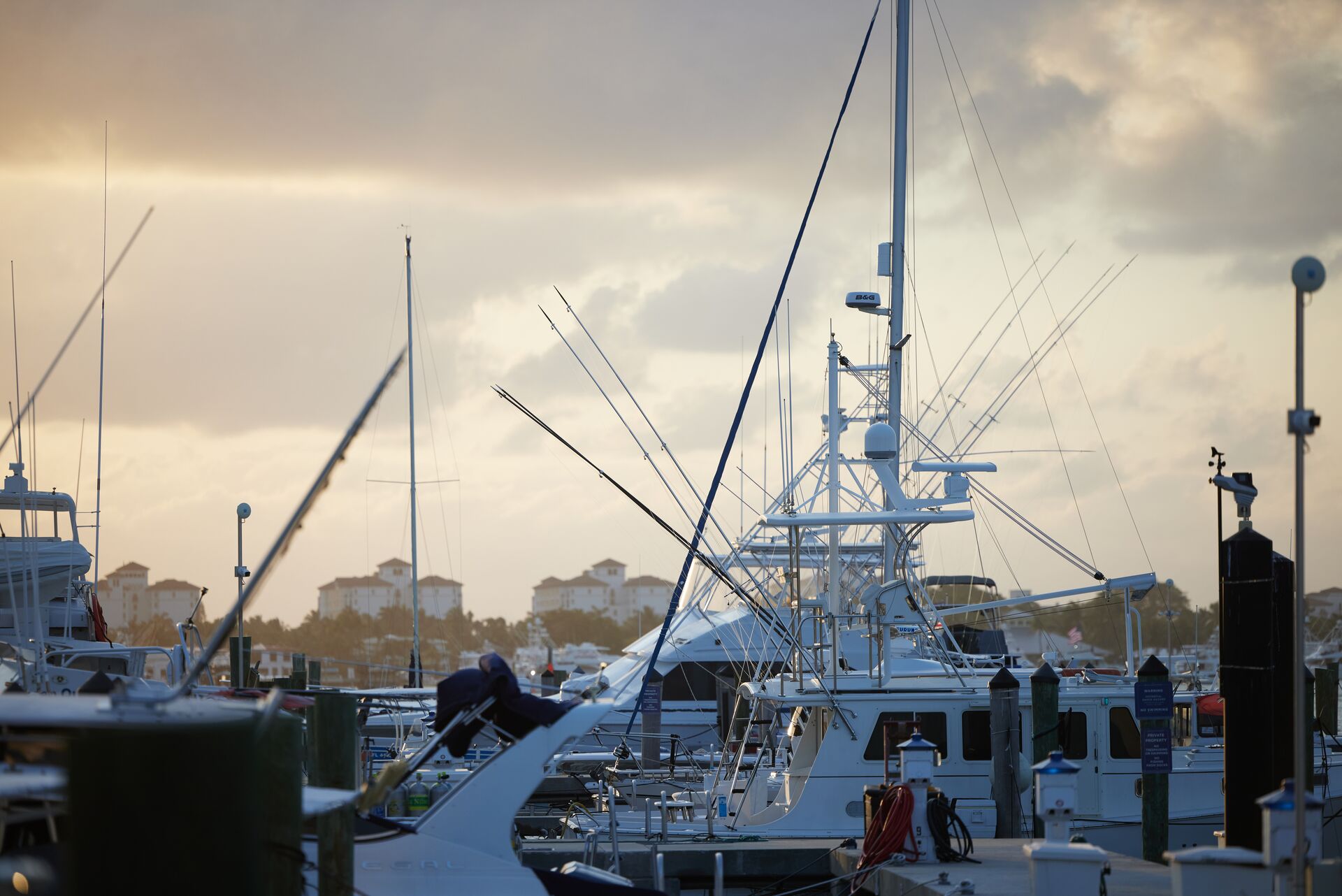
Maine Laws For Negligent Or Reckless Boat Operation
Maine also protects people using the state’s waters through regulations that discourage reckless operations.
For example, it is illegal to operate any watercraft, water ski, surfboard, or similar device in such a way as to recklessly create a substantial risk of serious bodily injury to another person. It is also unlawful for the owner of a watercraft to negligently permit another person to operate the watercraft in violation of law.
A person is guilty of operating a watercraft to endanger if he operates any watercraft, surfboard, water ski, or similar device so as to endanger any person or property.
Boat Speed Limits and Operation in Restricted Areas
Boaters understand signage and the rules of the water, including speed limits and areas where boats or PWCs are not allowed.
In general, no one may operate a watercraft at a speed greater than headway speed while within the water safety zone or within a marina or an approved anchorage in coastal or inland waters except while actively fishing. “Headway speed” means the minimum speed necessary to maintain steerage and control of the watercraft while the watercraft is moving.
Watercraft operators must operate at a reasonable and prudent speed for existing conditions and regulate the speed so as to avoid danger, injury, or unnecessary inconvenience in any manner to other vessels and their occupants, whether anchored or underway. Additionally, the operator must consider the effect of the wash or wave created by their watercraft on waterfront piers, floats, or other property or shorelines.
Boating and Alcohol
As you probably know, drinking and boating is a bad idea. Doing this can lead to legal violations and boating accidents.
In Maine, any person who operates or attempts to operate any watercraft while under the influence of intoxicating liquor or drugs, a combination of these, or has a 0.08% or higher blood alcohol level or higher is guilty of a criminal violation.
When requested by law enforcement, a watercraft operator must complete a blood-alcohol test if there is probable cause for the request. This includes operating any watercraft involved in an accident that results in the death of any person.
Maine Boat Accident Reporting Requirements
Boaters have responsibilities when involved in an accident on the water.
Boat or watercraft operators must file a formal, written report of any collision, accident, or other casualty or damage to any watercraft or other property of more than $300 by the quickest means of communication to the nearest available law enforcement officer.
Boating accidents include:
- Explosion
- Capsizing
- Disappearance
- Grounding
- Collision
- Falling Overboard
- Sinking
- Fire
- Struck by Boat/Prop (other than theft)
- Flooding
- Swamping
Additionally, boat operators involved in a collision, accident, or another casualty must render all necessary aid and assistance to all persons involved — as long as they can do this without serious danger to the watercraft, crew, and passengers. You must also give your name, address, and watercraft identification to anyone injured and to the owner of any property damaged.
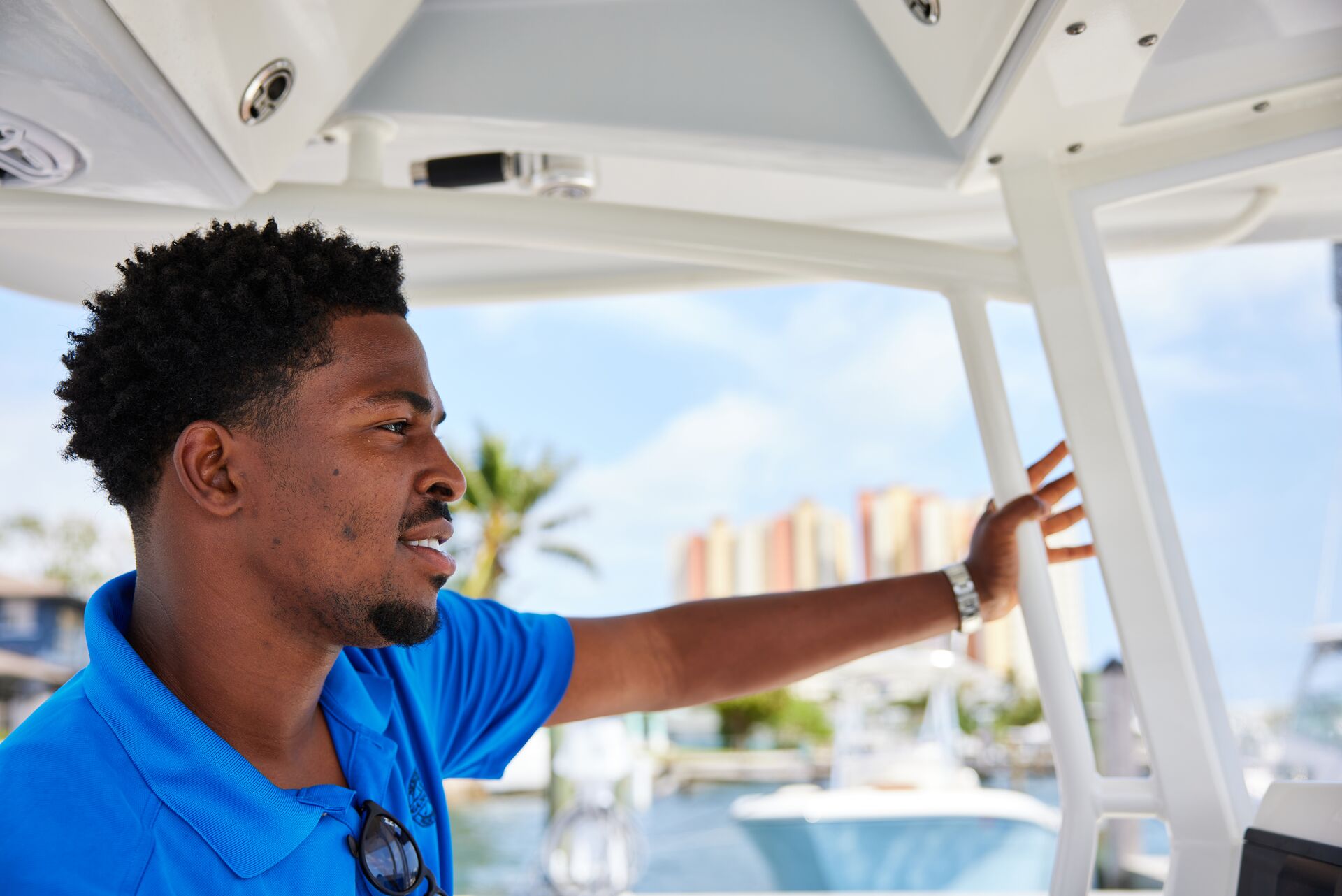
Take a Boater Safety Course and Follow Maine Boating Laws
We know this is a lot of information! However, it’s crucial for boaters to understand and follow these laws for every water adventure.
One of the best ways to learn how to stay safe and learn about boating laws is to take a boater education course. The online courses through BOATsmart! are a fun and engaging way to learn and retain the information so you can apply it every time you drive a boat, a PWC, or any watercraft — no matter where you boat.
Originally published in May 2018. Content most recently reviewed and updated for accuracy and relevancy October 8, 2024.
